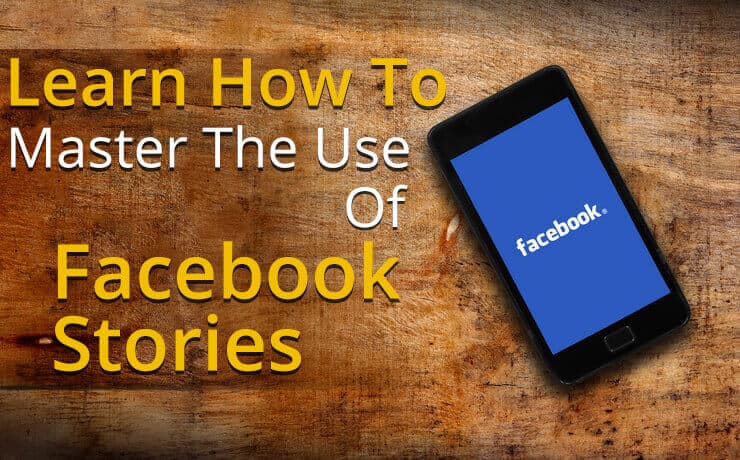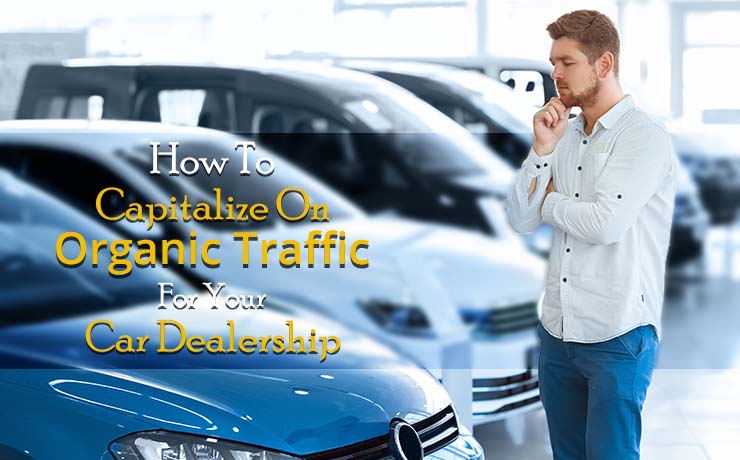
Your auto dealership is most likely losing out on its most valuable traffic channel: Organic!
Search engines – and specifically Google – continue to be where the vast majority of the country (and the world) start when they want to find something online. In fact, Google now averages over 6 BILLION searches per day (this can always be verified always via internetlivestats.com):
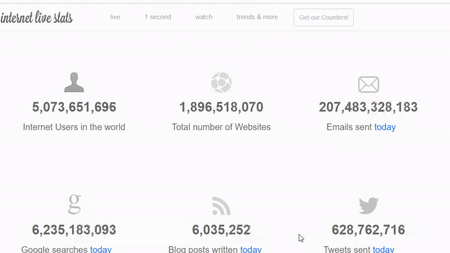
Google Search is still the #1 tool used for new car research and the best way to reach in-market used/CPO car shoppers:
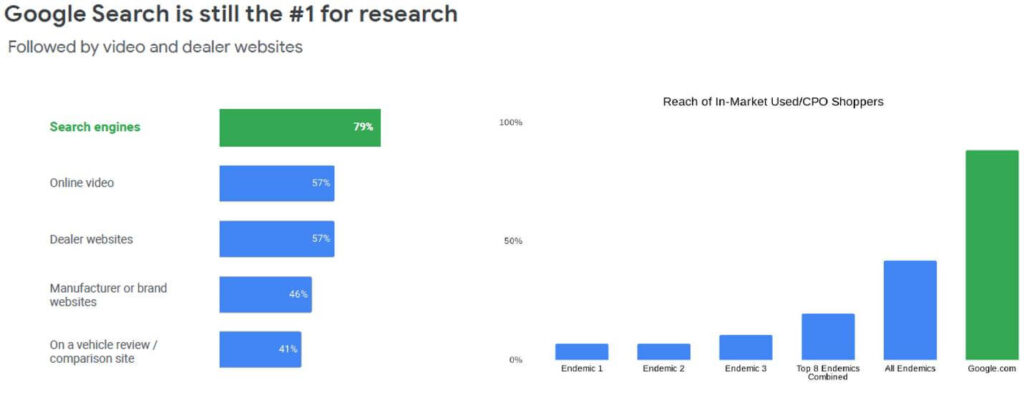
Of course, that all makes sense and is at this point… common knowledge. But what makes this more interesting is when we start comparing dealership traffic channels and then overlaying the marketing spend against that. Let’s start with the traffic first. As is no surprise (especially after the introduction on importance of Google), a study of over 155 dealerships showed that Organic Search traffic represents more than 51% of total dealership website users (it’s actually 67% when we factor in paid search).
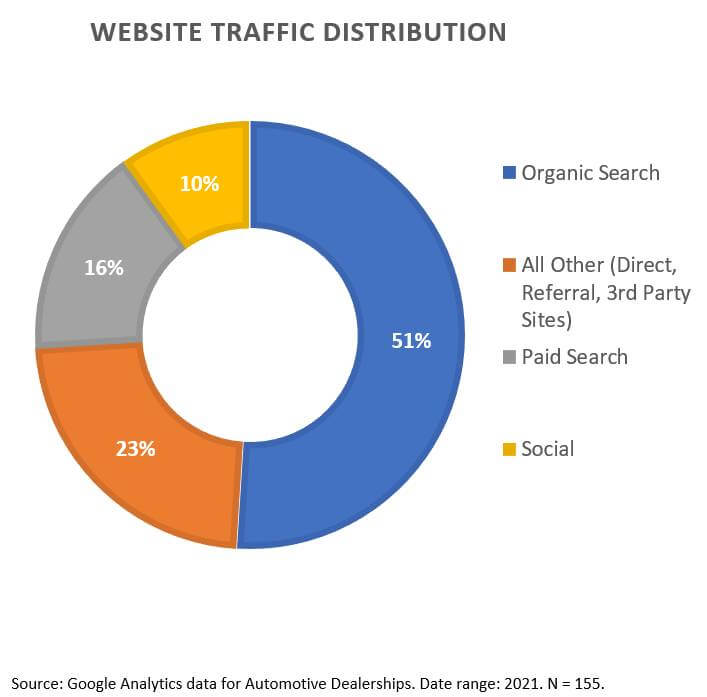
So of course, you would imagine that marketing budgets would closely reflect these traffic channels with advertisers focusing on the channels that bring in the most traffic. However, taking a deeper dive into marketing budgets, we found that Organic Search represents the smallest part of most dealerships marketing budget (as low as 7% in aggregate based on our research).
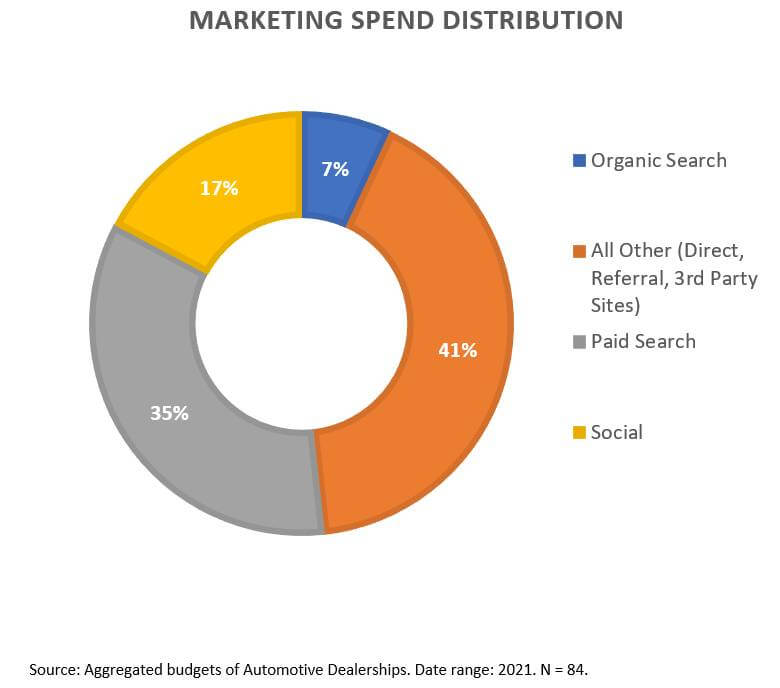
That means that most dealerships are most likely losing out on their most valuable traffic channel by not investing in SEO! So, let’s take a step back. What does it mean to invest in SEO? Typically, we can split up Organic Search results into two buckets – Google Maps (Local Pack) and Local Organic. Both have different ranking signals and areas that an auto dealership should focus on to improve their performance. The below chart, sourced from the BrightLocal Top SEO Ranking Factors of 2021, shows where you should focus your energy.
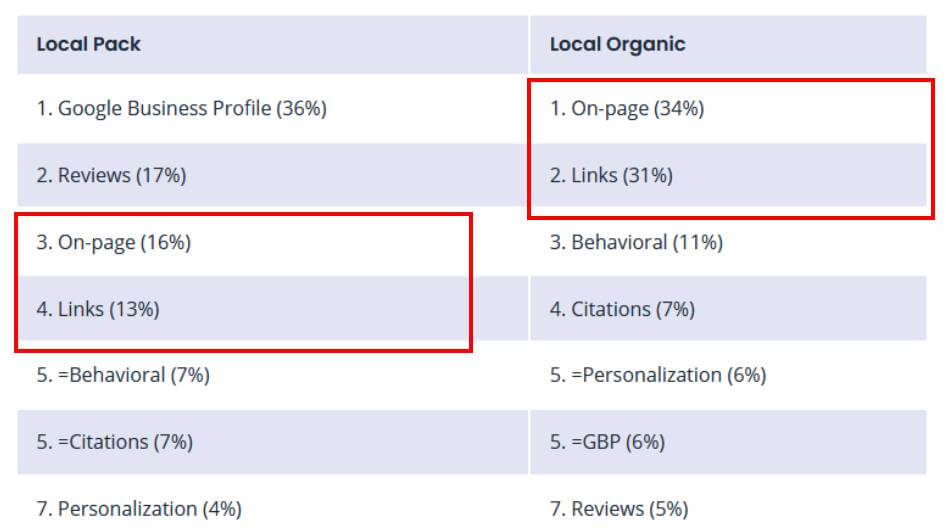
In short, once you optimized your Google Business Profile and have focused on your reviews, the most important ranking factors continue to be your on-page SEO and links. On-page SEO is a combination of technical on-page optimizations as well as the QUANTITY and QUALITY of your overall site content.
While we’ve seen some dealerships focus on this, it’s usually overlooked. Generally speaking, you should be published at least 10-20 pages of content each month – the content has to be unique, relevant and attract the right kind of traffic. For example, a page about how to configure your car clock might be unique and relevant but might not be attracting sales traffic.
The second part is perhaps the most overlooked – LINK BUILDING! Links continue to be the primary way that Google determines your rankings. The more relevant & authoritative sites that link to you, the more authoritative Google considers you to be. And the content you’re creating just gives you the opportunity to come up in search results.
Think of it this way – if you didn’t write that page about setting the car clock, no matter how authoritative, you wouldn’t come up in the results since you didn’t have the content for it.
And just to wrap it all up, with Organic Search traffic continuing to be the biggest source of dealership traffic (and usually the best converting traffic), car dealerships really need to revaluate their marketing budget distributions to better allocate money to grow their #1 traffic source. Let SmartSites help you with that today.





